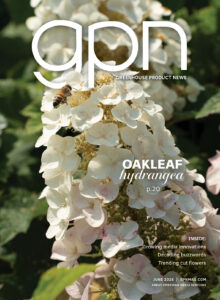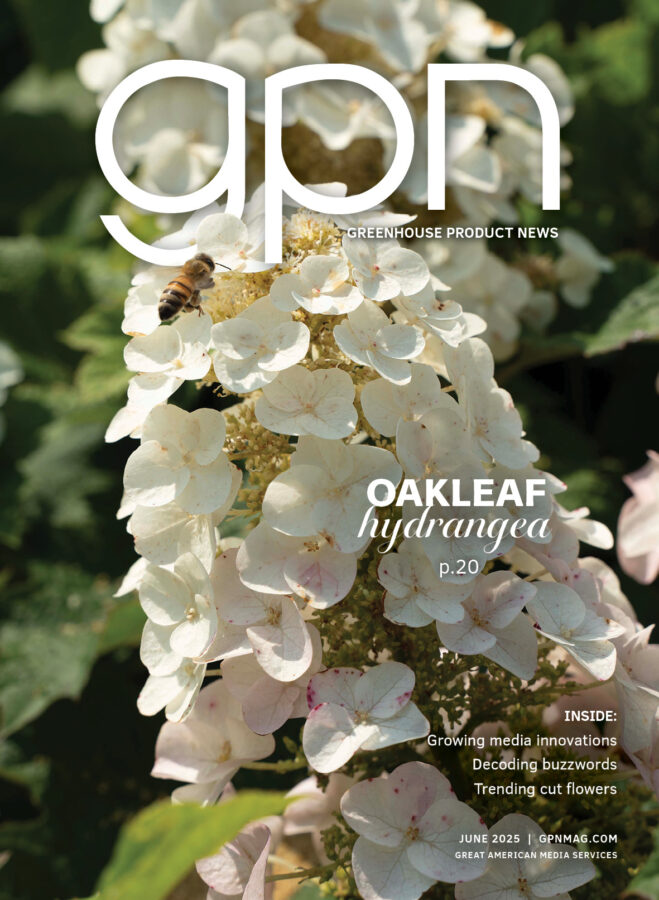Spear Bioinsecticide Earns EPA Green Challenge Chemistry Award
Vestaron Corporation’s bioinsecticide Spear has earned recognition from the Environmental Protection Agency via its Green Chemistry Challenge Awards Program.
Since 1996, the EPA in partnership with the American Chemical Society Green Chemistry Institute has awarded more than 100 winners for technologies that incorporate the principles of green chemistry design into chemical design, manufacture and use.
Spear bioinsecticide was recognized in the focus area of “The Design of Greener Chemicals” within the extremely competitive Small Business Division.
“We are pleased and honored to be recognized for Vestaron’s accomplishments in developing and commercializing the active ingredient in Spear bioinsecticide. For years, the use of peptide technology for pest control has been a desired but elusive goal of the crop protection industry,” said Robert Kennedy, chief scientific officer for Vestaron.
On June 16, Kennedy presented “Spear Biopesticide: A Pioneering Peptide Meeting the Efficacy Demands of Synthetics and Delivering the Safety Profile Expected from Biologics” during the 2020 Green Chemistry & Engineering Virtual Conference, available for viewing free of charge by registering at www.gcande.org/register.
Key points from the award application for Spear bioinsecticide are:
Spear is currently available in two products, Spear-T for contact control of smaller, soft-bodied insect and Spear-Lep for control of lepidopteran larvae in high-value field crops. It is the first line of insecticides using the new chemical class of cysteine rich peptides.
Vestaron has surmounted three key hurdles that hindered previous efforts in peptide insecticide development: 1) development of cost-efficient manufacturing; 2) formulation for oral availability in pests; and 3) EPA regulatory approval.
Spear operates by a new mode of action, recognized by a scientific panel with a new neuromuscular IRAC code (Group 32), that immediately addresses insecticide resistance to current synthetic insecticides. The peptide is active against a broad range of insect orders including Diptera, Coleoptera, Lepidoptera and Orthoptera.
As required by the EPA, Spear was subjected to acute toxicological tests to confirm both effectiveness as an insecticide and safety to non-target organisms, including adult honey bees. This validates Spear’s role as an alternative to insecticides like the neonicotinoids that are increasingly subject to restrictions on treating flowering plants.
For more information about Spear, go to www.vestaron.com.









 Video Library
Video Library 


















